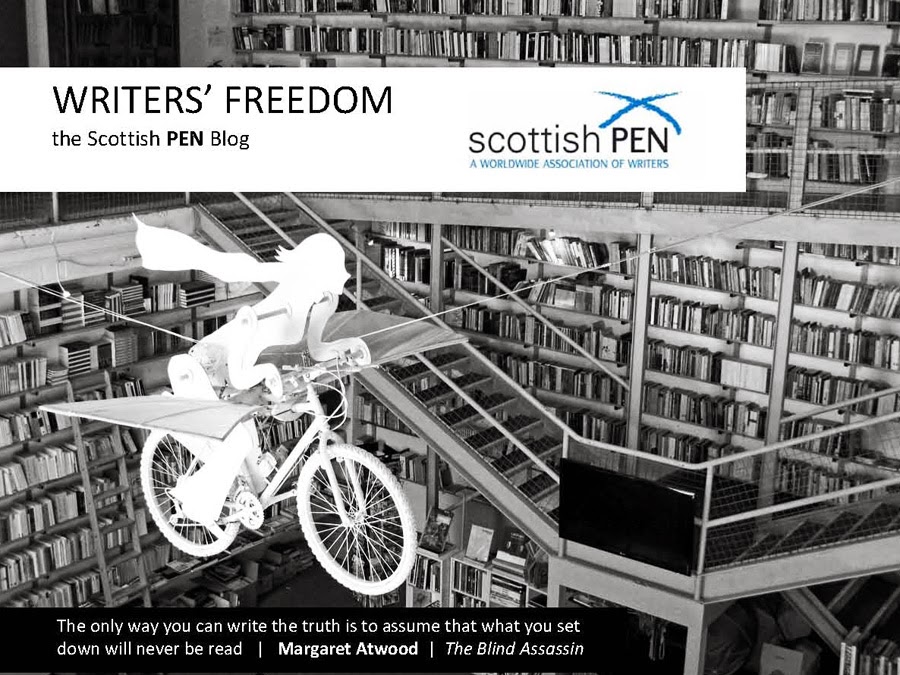It may be
a coincidence that just as the post-ironic Creative Scotland crumbles
a book is published that expresses the views of 27 writers on the
cultural implications of Scottish independence but I can’t help
seeing a connection.
Over half
the writers are members of PEN (and the rest would be very welcome if
they’d care to join). The 27 essays vary greatly in tone and in
points of departure and arrival, but most state or imply support for
independence. There is, however, a prominent note of scepticism:
whatever the political gains and losses of a self-governing Scotland,
it is unrealistic to assume that an improvement in cultural health
will automatically follow. The record under the SNP aegis is not
encouraging.
The book’s
editor, Scott Hames of Stirling University, states in his
introduction that the collection aims to ‘record what various
Scottish writers really thought about the independence question, in a
context free from the noise and enforced concision of the media
debate’. Unfortunately, perhaps inevitably, the media debate has
seized on the comments of two of Scotland’s leading writers,
Alastair Gray and James Kelman, whose usefully (for the press)
controversial depiction of English colonisation of Scottish culture
has so far dominated response to the book. But Gray and Kelman should
be read in the context of the other views expressed, many of which
reach beyond the old resentments and complaints.
A phrase
that comes up in many of the essays is ‘social justice’. To my
mind, social justice includes the right of access to all forms of
creative expression, as practitioner and audience. It includes the
right of all our citizens, but especially our children as they will
carry these expectations into the future, to read and write, to make
and listen to music, to make and enjoy pictures, to dance, to design
and construct all kinds of objects, to create in ways we haven’t
yet imagined. Whether or not our writers win prizes emanating from
the dubious activities of corporate organisations is hardly relevant
to the literary health of Scotland. What does matter is that our
citizens have access to the books our writers write, and are enabled
to participate in the experience of reading and responding to their
words.
The issues
raised in these essays are important, now and for the future, and I’d
urge all practising writers (and readers) to engage with them. For
Scottish PEN, the relationship between government and artistic
endeavour is crucial, and we need to be alert to the more insidious
ways culture is manipulated and curtailed. Whichever way the
referendum vote goes, we need to look both close to home and beyond
our immediate neighbour for the means to sustain a vibrant artistic
life. These 27 contrasting voices are a good place to start. Scottish
PEN, with its international perspective and commitment to freedom of
expression, has a key role to play in the coming months.
In the
meantime, I recommend Unstated. It’s published by Word Power
Books, www.wordpower.co.uk.
But don’t hang about – the first printing is already sold out and
there’s probably a queue for the second.
Jenni Calder

No comments:
Post a Comment